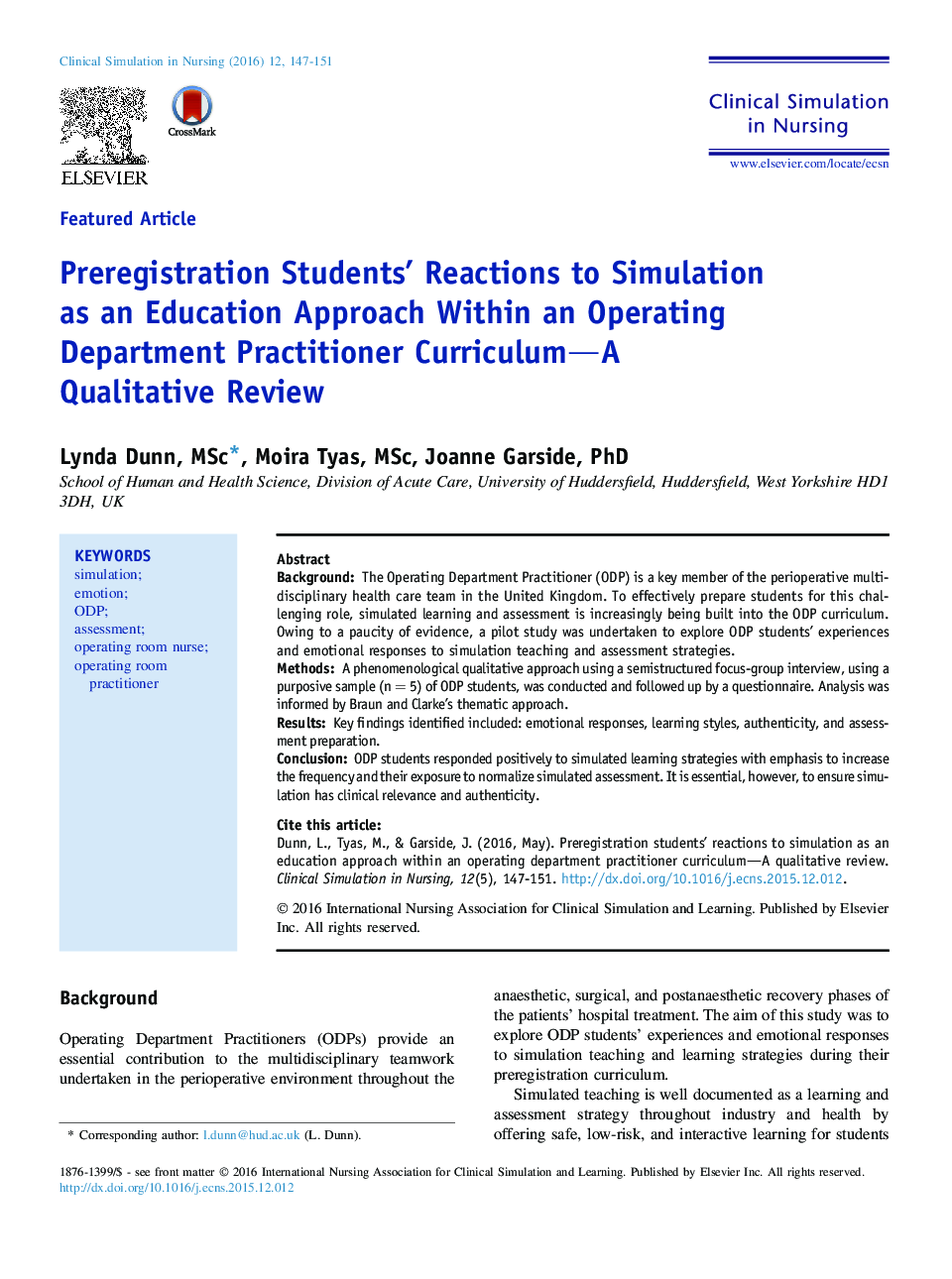| Article ID | Journal | Published Year | Pages | File Type |
|---|---|---|---|---|
| 2645901 | Clinical Simulation in Nursing | 2016 | 5 Pages |
•Students prepare more thoroughly for a simulated assessment than other strategies.•Simulation exposed feelings of anxiety and nervousness in students.•Students would prefer an increase in frequency and exposure to simulated activities.
BackgroundThe Operating Department Practitioner (ODP) is a key member of the perioperative multidisciplinary health care team in the United Kingdom. To effectively prepare students for this challenging role, simulated learning and assessment is increasingly being built into the ODP curriculum. Owing to a paucity of evidence, a pilot study was undertaken to explore ODP students' experiences and emotional responses to simulation teaching and assessment strategies.MethodsA phenomenological qualitative approach using a semistructured focus-group interview, using a purposive sample (n = 5) of ODP students, was conducted and followed up by a questionnaire. Analysis was informed by Braun and Clarke's thematic approach.ResultsKey findings identified included: emotional responses, learning styles, authenticity, and assessment preparation.ConclusionODP students responded positively to simulated learning strategies with emphasis to increase the frequency and their exposure to normalize simulated assessment. It is essential, however, to ensure simulation has clinical relevance and authenticity.
